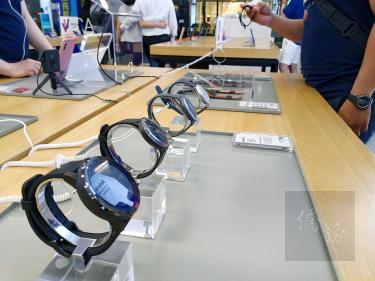
Standards for wearable devices that monitor body functions should be established, as their effectiveness and features, as well as the reliability of their data, are questionable, Linkou Chang Gung Memorial Hospital cardiologist Chang Po-cheng said.
Wearable health monitoring devices such as fitness wristbands and sports watches are being introduced, with many touting features such as heart rate monitors, pedometers and milometers, as well as functions to estimate calories burned and track sleep.
However, physiological data from such devices seem questionable and should be used for reference only, Chang said.
Proper medical treatment still requires hospital equipment, said Chang, who led a team who developed a wearable device that monitors the heart.
Most of the consumer wearable health devices in stores produce data that are easily affected by noise, Chang said.
Signal stability is the most important factor and the devices work best when stuck to the skin, so smart health wristbands or watches that are not in constant contact with the skin due to the wearer’s activities lack signal stability, he said.
However, consumer devices can still be helpful. For example, heart rate monitoring can alert the wearer to early signs of cardiac arrhythmia, or irregular heartbeat, and prompt them to seek medical attention, he said.
Taipei Medical University College of Medical Science and Technology dean Jack Li said that wearable devices that promote themselves as health monitors should have features that are superior to other wearable consumer devices.
The government should establish quality examination and verification standards for such devices, so that doctors and the general public could trust the data, he said.
According to the Ministry of Economic Affairs’ Bureau of Standards, Metrology and Inspection, only wearable GPS devices need to pass accuracy requirements, while non-GPS wearable devices are only tested for battery capacity and safety.
The Food and Drug Administration said it has spent about NT$800,000 to establish examination criteria for wearable health monitoring devices, including for data stability while monitoring static and dynamic heart rates, blood oxygen levels and others.